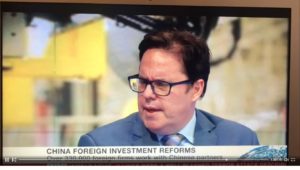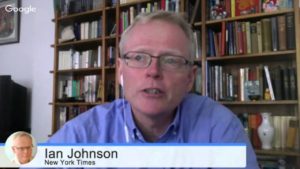
China’s consumers have developed new behavior during the lengthy quarantine, writes marketing expert Ashley Dudarenok and dives into newly emerged economies like the smart home market, and the fitness market for Dao Insights.
Ashley Dudarenok:
The smart home market
People at home started looking into purchasing smart home and entertainment devices during the pandemic, driving the “Stay-at-Home” Economy forward. Such devices include electronic locks, home security devices and virtual reality equipment.
Smart home technology has evolved in recent years due to the rapid development of new technologies such as the Internet of Things (IoT), artificial intelligence, and 5G. China’s market has demonstrated to have the biggest potential as the world’s demand rises.
In recent years, IoT devices are becoming more powerful and smarter, and their form factors are shrinking. Enhancements in communication protocols are delivering greater range and greater energy efficiency, and consumers are adding more connected devices to their homes. All of this means the possibility of realising more complex functional combinations, where multiple devices can work together seamlessly and intelligently.
According to the China Business Industry Research Institute, the scale of China’s smart home market has increased from 260.85 billion RMB ($38.66 billion) to 514.47 billion RMB ($76.24 billion) from 2016 to 2020 with an average annual compound growth rate of 18.51%.
The home fitness market
With nationwide lockdowns came the closure of fitness centres and sports interest classes. The Chinese were forced to come up with ways to stay fit during the pandemic and this led to a rise in the purchases of exercise equipment. People were also worried about living an inactive lifestyle at home and decided to start actively taking care of their health.
More young people were opting for at-home workouts as the pandemic spread because the internet has made regimens, fitness gurus, and sports stars more accessible than ever. Millions have made it a daily ritual to tune into Liu Genghong’s livestreams. The 49-year-old musician, who was born in Taiwan, recently rose to fame online because of his entertaining fitness livestreams on Douyin. Olympic sprinter Su Bingtian, who has 4.7 million followers on Douyin, regularly shares brief videos of at-home workouts like squats and high knee exercises.
Over half of the 234 participants in a small-scale survey by CGTN exercise at home on a regular basis, and over one-third of participants exercise every day or at least three times each week. The pandemic, time savings, and cost savings were listed by respondents as the three main benefits of working out at home.
More economies at the Dao Insights.
Ashley Dudarenok is a speaker at the China Speakers Bureau. Do you need her at your (online) meeting or conference? Do get in touch or fill in our speakers’ request form.
Are you looking for more consumer experts at the China Speakers Bureau? Do check out this list.


